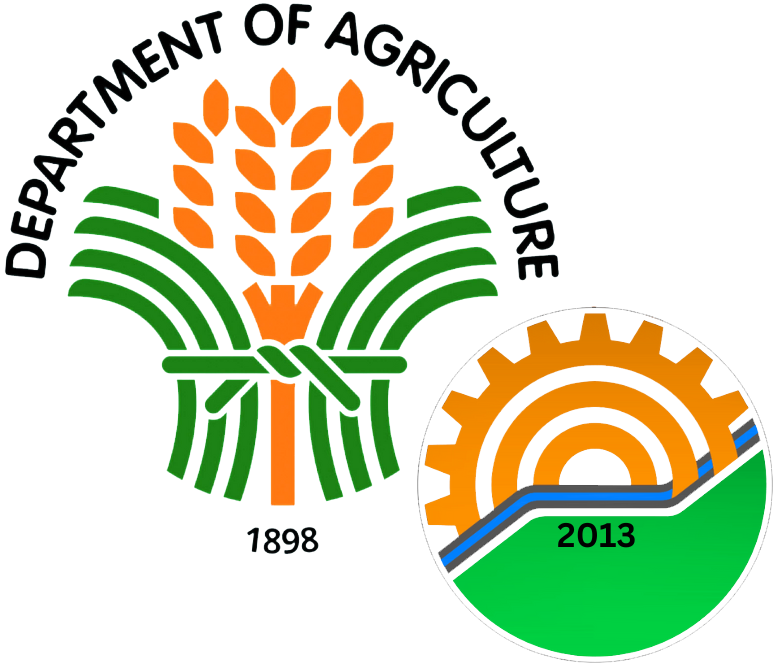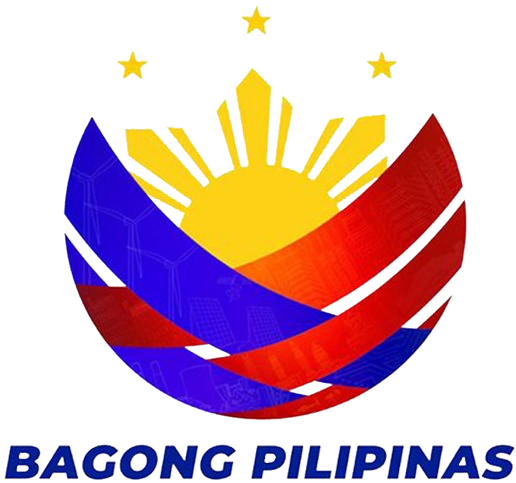The International Rice Research Institute (IRRI) – Bureau of Agricultural and Fisheries Engineering (BAFE) joint project on Laser Land Leveling (LLL) has officially concluded upon IRRI’s presentation of the terminal report on June 1, 2021.
The project entitled “Laser Land Leveling for Land Use Efficiency in the Philippines” aims to improve rice-based land use efficiency, productivity, and sustainability by fostering the adoption of LLL in the country. A Memorandum of Agreement (MOA) that formalizes the project was signed by IRRI and BAFE in 2020 to enhance capacity of LLL operation and management and to increase LLL effectiveness.
BAFE allocated Php 1.7 million funding for the project and organized LLL training and seminars in preparation for LLL equipment utilization.

DA-BAFE Director Ariodear C. Rico expressed gratitude to the IRRI team composed of Engr. Martin Gummert, Dr. Nguyen Van Hung, Engr. Caling Balingbing, Mr. Richard Pasco (IT consultant), Engr. Joseph Sandro, and Ms. Grace Barbacias, for the congruent collaborative undertaking.
LLL is one of the interventions that supports and complements the Department of Agriculture’s thrust in farm consolidation. To mainstream LLL, Dir. Rico suggested to organize a meeting to brief DA’s head of farm clustering (under the Field Operations Services office under Dr. Leo Caneda) as well as DA regional field offices who have already identified clustering sites in rice producing areas.
These regional offices have provided interventions such as institutional development and other farm machinery that complements RCEF’s Farm Mechanization Program where part of the specifications is to prescribe the LLL component in the pilot sites, said Dir. Rico.
IRRI developed LLL training programs can be rolled out and perhaps be integrated in the Rice Machinery Operation (NC II) because RMO accredited trainor/assessors who are agricultural and biosystems engineers are currently helping in tractor operations. Also, there is a bill filed in Congress on LLL, and a committee hearing is planned sometime in July or August to brief legislators, Dir. Rico said.
DA-BAFE Assistant Director Dr. Juana Tapel commended IRRI for its “professionalism and culture of excellence in performing their deliverables and commitment.” With the presentation of the terminal report, BAFE and IRRI can check the substantial output.
“We at BAFE are delighted with the timely completion of this joint undertaking,” said Dr. Tapel. The terminal report runs through the “processes, procedure, findings, conclusions, and recommendations, including way forward for another joint project,” she added.
Engr. Balimbing, Senior Associate Scientist in IRRI, is encouraged to hear BAFE’s plans and is excited about recent developments with the adoption of LLL in the Philippines and other technologies incorporated by DA in its projects. “Thank you BAFE for really adopting this technology and integrating in your programs.” He is looking forward to more opportunities for collaboration in projects.
To meet the project’s objectives, the collaboration generated four outputs – LLL training manual and E-learning, online and offline training and demos, LLL standard, and Land leveling digital tools, said Dr. Hung, Scientist I at IRRI.
The LLL training manual which was made available in December 2020 covers the descriptions and guidance on the benefits, cost-benefit analysis, and procedure for using LLL. Online and offline training and demos were conducted in November 2020 for BAFE and DA RFO RDE staff, explained Dr. Hung.
Standards are important measures for the engagement, business, and contact between farmers and service providers. Standards for LLL equipment, operation, and evaluation in the Philippines became available in February 2021 so the farmers, service providers, and policymakers can refer to these measures.
Land leveling digital tools include the Land Leveling Advisor Excel tool and Easyleveling mobile application (an Uber-like booking service) for LLL search, booking, and service recommendation.
The Land Leveling Advisor Excel tool serves as a guide for the optimization of LLL operations by gathering input on field characteristics (field length, field width, soil type, and season), point measurement guide, height measurements, and machine data. Knowing the key high and low points of the field speeds up the land leveling process. The Excel tool provides farmers with the estimated cost and appropriate combination of tractor and leveler.
A webinar to promote LLL was conducted in October 2020 and attended by senior officials of DA and IRRI.

“With the support of other related IRRI projects and CGIAR-RICE program and collaboration of BAFE, the major deliverables planned under the project were achieved. The first version of the LLL-App will be completed in June 2021,” said Dr. Hung.
According to Dr. Hung, IRRI is proposing to further develop and verify the LLL standard to be a national standard in collaboration with concerned government agencies; optimize land consolidation and leveling through integration of LLL, upgraded RTK-land leveling, drones for topographic measurements, and other digital soil and crop databases; piloting and further developing the EasyLLL App which can be explored to use for other agricultural machineries; and catalyzing LLL through capacity building and demonstrations (combined LLL, RTK-leveling system, and App).
LLL E-learning
Mr. Ryan Gil Guillermo, Associate Manager at IRRI Education, walked through the LLL course in IRRI’s E-learning Management System. Accessible only through the internet, the LLL course provides an overview of the benefits and operations to conduct laser land leveling.
Upon completing the course, learners are expected to identify the processes involved in LLL, distinguish the safe practices in operating the different types of LLL equipment, demonstrate the operations and processes in LLL, and perform troubleshooting procedures in LLL.

The course is divided into five modules regarding introduction on the operation of tractors, tractor parts and maintenance, setting up the laser and hydraulic systems, topographic survey and calculating operation costs, and business models and the way forward. The modules include a mix of text, visuals, and videos.
Information on navigation controls is provided to facilitate accessing the course’s learning activities, which stakeholders could take at their own pace. Embedded in the course are videos of experts from IRRI’s Postharvest and Mechanization Unit discussing topics on the necessary operations in LLL.
A recap is provided to ensure that key takeaways are remembered. A knowledge check or a short quiz can be taken at the end of the module to refresh the learner’s knowledge on the skills and concepts presented in the module.
A downloadable exercise designed to integrate hands-on exercises in the field with specific instructions is made available so learners could practice the required competencies and skills in LLL.
LLL Mobile apps
Mr. Richard Pasco, IT consultant, presented the two mobile apps on LLL developed by IRRI for BAFE – the EasyLevel and EasyFarm apps. The EasyLevel app is connected to the Land Leveling Advisor Excel tool. Most of the data from the Excel tool is condensed and used as input for the EasyLevel app which is an adaptation of the previous EasyHarvest app developed for combine harvesters developed in 2020.

For the LLL project, IRRI adapted the EasyHarvest app and used laser land levelers. Data can be managed depending on the role whether that of a farmer, service provider, or administrator. Farmers who use the app can edit the different parameters such as field name, processing date, season, field length and width, soil type, and volume of soil to move. The processing date is an important parameter that will be used in booking the machinery. Booking, upcoming booking, booking history (a record of past bookings), and optimal booking can be accessed.
The EasyLevel app is integrated with Google sign in because most Android devices already have Google accounts, thus facilitating the log-in process using passwords. The parameters or data set needed for optimizing each LLL machine like the GPS ID, capacity (in hectares per day), cost or rental (Php/day), horsepower, hauling speed (in km/hr), bucket width, bucket length, and bucket height are incorporated in the app. More machinery can be added depending on their availability on a certain locality. The location of each machinery and the resource type can also be accessed. Administrators can control access to the EasyLevel app, approve or reject registration of users, and have an overview of current resources in the system (both fields and machinery).
The other app called EasyFarm, developed from January to April 2021, was requested by BAFE to use geo-SMS that can be used offline. The app can locate the nearest facility and machinery within a specified radius. The data will be provided by the ABEMIS, a database developed by BAFE. The app was initially designed to be used offline and would use text messaging to fetch the data back and forth (will send an SMS and wait for a reply). But since the SMS server is currently unavailable, the app uses internet in the meantime. ###Marshall Louie Asis, DA-BAFE (Published on June 7, 2021)
















